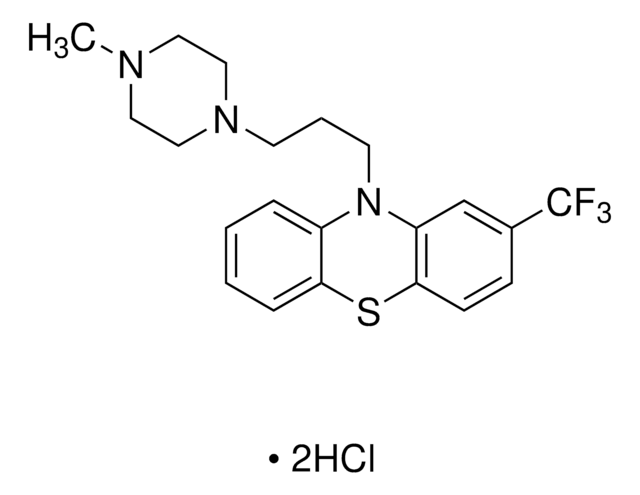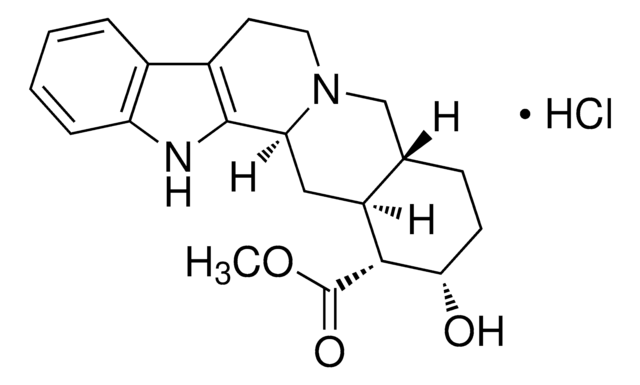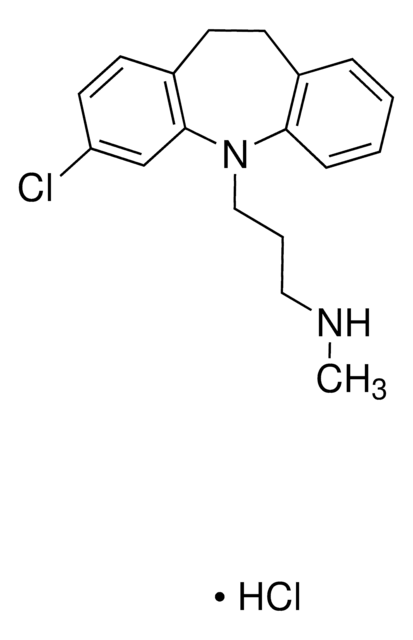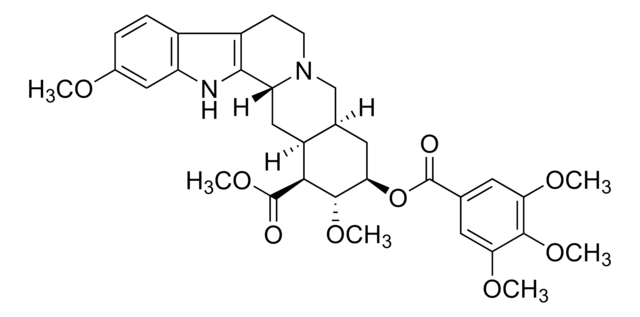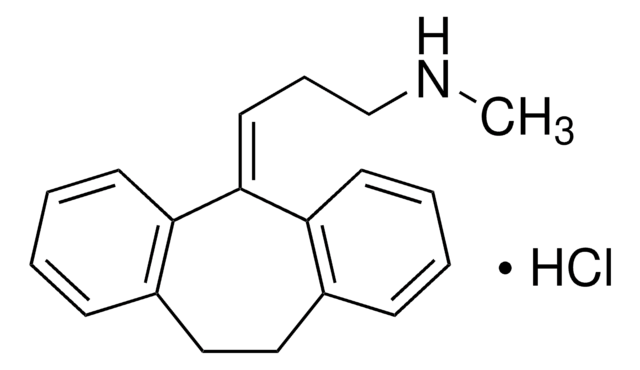T6062
Trifluoperazine hydrochloride
meets USP testing specifications
Synonym(s):
Trifluoperazine dihydrochloride, 10-[3-(4-Methylpiperazin-1-yl)propyl]-2-(trifluoromethyl)-10H-phenothiazine dihydrochloride
About This Item
Recommended Products
Agency
USP/NF
meets USP testing specifications
Quality Level
Assay
98-101% dry basis
form
powder
mp
243 °C (dec.) (lit.)
solubility
water: 50 g/L, clear
application(s)
pharmaceutical (small molecule)
storage temp.
−20°C
SMILES string
Cl[H].Cl[H].CN1CCN(CCCN2c3ccccc3Sc4ccc(cc24)C(F)(F)F)CC1
InChI
1S/C21H24F3N3S.2ClH/c1-25-11-13-26(14-12-25)9-4-10-27-17-5-2-3-6-19(17)28-20-8-7-16(15-18(20)27)21(22,23)24;;/h2-3,5-8,15H,4,9-14H2,1H3;2*1H
InChI key
BXDAOUXDMHXPDI-UHFFFAOYSA-N
Gene Information
human ... DRD2(1813) , DRD3(1814) , DRD4(1815) , HTR2A(3356) , HTR2C(3358)
Looking for similar products? Visit Product Comparison Guide
Signal Word
Danger
Hazard Statements
Precautionary Statements
Hazard Classifications
Acute Tox. 4 Oral - Aquatic Acute 1 - Aquatic Chronic 1 - Eye Irrit. 2 - Muta. 2 - STOT RE 1 - STOT SE 3
Target Organs
Central nervous system, Eyes
Storage Class Code
6.1C - Combustible acute toxic Cat.3 / toxic compounds or compounds which causing chronic effects
WGK
WGK 3
Flash Point(F)
Not applicable
Flash Point(C)
Not applicable
Personal Protective Equipment
Regulatory Listings
Regulatory Listings are mainly provided for chemical products. Only limited information can be provided here for non-chemical products. No entry means none of the components are listed. It is the user’s obligation to ensure the safe and legal use of the product.
JAN Code
T6062-10G:
T6062-25G:
T6062-BULK:
T6062-VAR:
T6062-5G:
Choose from one of the most recent versions:
Already Own This Product?
Find documentation for the products that you have recently purchased in the Document Library.
Customers Also Viewed
Our team of scientists has experience in all areas of research including Life Science, Material Science, Chemical Synthesis, Chromatography, Analytical and many others.
Contact Technical Service